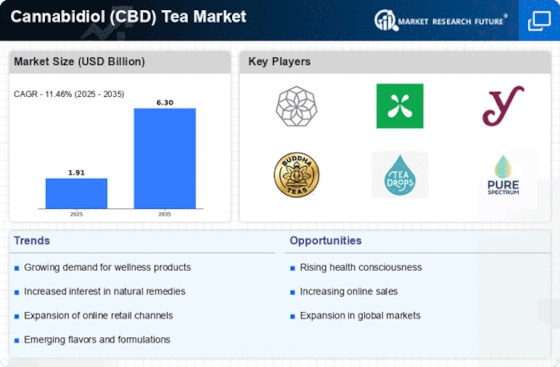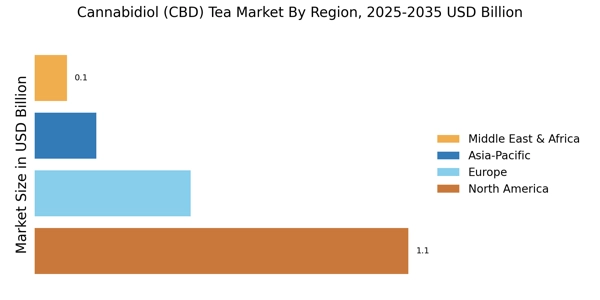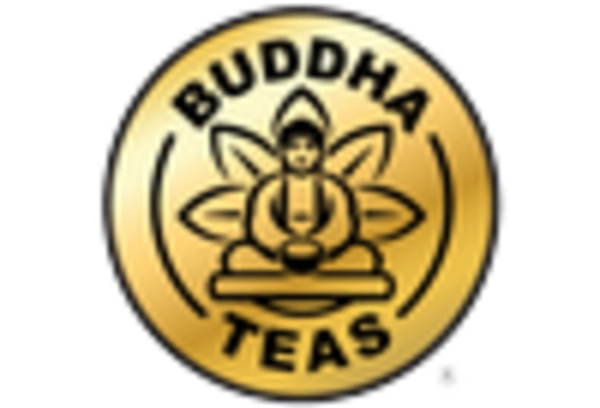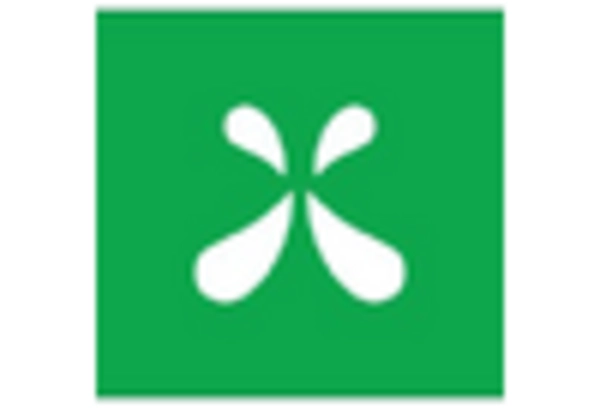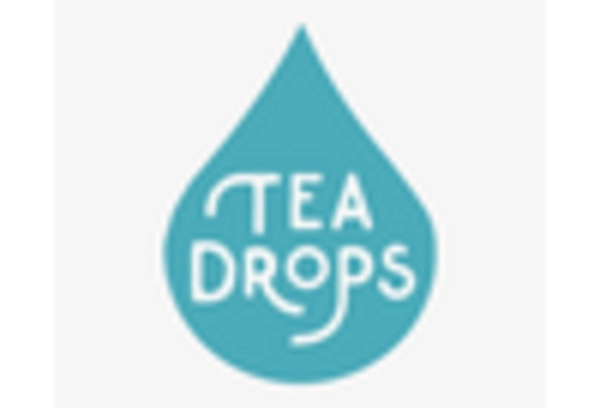Expansion of Retail Channels
The Cannabidiol (CBD) Tea Market is witnessing an expansion of retail channels, which significantly enhances product accessibility for consumers. Traditional brick-and-mortar stores, alongside e-commerce platforms, are increasingly offering a variety of CBD-infused teas. This diversification in distribution channels is crucial, as it allows consumers to easily access products that align with their health and wellness goals. Recent statistics indicate that online sales of CBD products have surged, with e-commerce accounting for a substantial portion of the market share. This trend suggests that the Cannabidiol (CBD) Tea Market is well-positioned to capitalize on the growing preference for convenient shopping experiences.
Innovations in Product Formulation
The Cannabidiol (CBD) Tea Market is characterized by continuous innovations in product formulation, which cater to evolving consumer preferences. Manufacturers are increasingly experimenting with various tea blends, flavors, and additional functional ingredients to create unique offerings. This innovation not only enhances the sensory experience but also addresses specific health concerns, such as sleep disorders or digestive issues. Market Research Future indicates that consumers are willing to pay a premium for high-quality, innovative products. This willingness to invest in unique formulations positions the Cannabidiol (CBD) Tea Market for potential growth as brands strive to differentiate themselves in a competitive landscape.
Increasing Demand for Natural Remedies
The Cannabidiol (CBD) Tea Market experiences a notable surge in demand for natural remedies as consumers increasingly seek alternatives to conventional pharmaceuticals. This trend is driven by a growing awareness of the potential health benefits associated with CBD, including its anti-inflammatory and anxiety-reducing properties. According to recent data, the market for herbal teas, including those infused with CBD, is projected to grow at a compound annual growth rate of approximately 8% over the next five years. This shift towards natural products reflects a broader societal movement towards holistic health and wellness, positioning the Cannabidiol (CBD) Tea Market favorably for sustained growth.
Growing Interest in Functional Beverages
The Cannabidiol (CBD) Tea Market benefits from the rising interest in functional beverages, which are perceived as products that offer health benefits beyond basic nutrition. Consumers are increasingly drawn to beverages that promote relaxation, stress relief, and overall well-being. The infusion of CBD into tea aligns perfectly with this trend, as it combines the soothing properties of tea with the potential therapeutic effects of cannabidiol. Market analysis indicates that the functional beverage sector is expected to grow significantly, with CBD-infused drinks playing a pivotal role in this expansion. This growing interest positions the Cannabidiol (CBD) Tea Market for potential growth and innovation.
Influence of Social Media and Influencers
The Cannabidiol (CBD) Tea Market is significantly influenced by social media and the rise of health and wellness influencers. These platforms serve as powerful marketing tools, enabling brands to reach a wider audience and educate consumers about the benefits of CBD tea. Influencers often share personal experiences and testimonials, which can enhance consumer trust and drive purchasing decisions. Recent surveys indicate that a considerable percentage of consumers are influenced by social media when making health-related purchases. This trend suggests that the Cannabidiol (CBD) Tea Market could leverage social media strategies to enhance brand visibility and consumer engagement.


